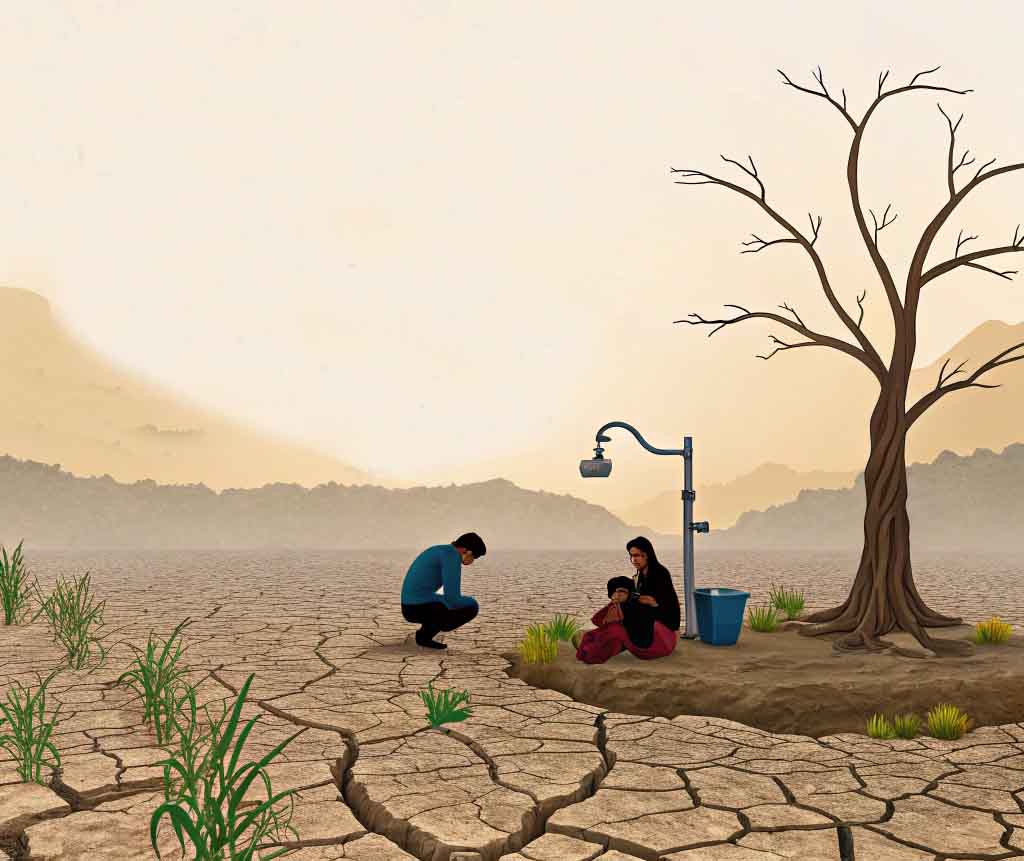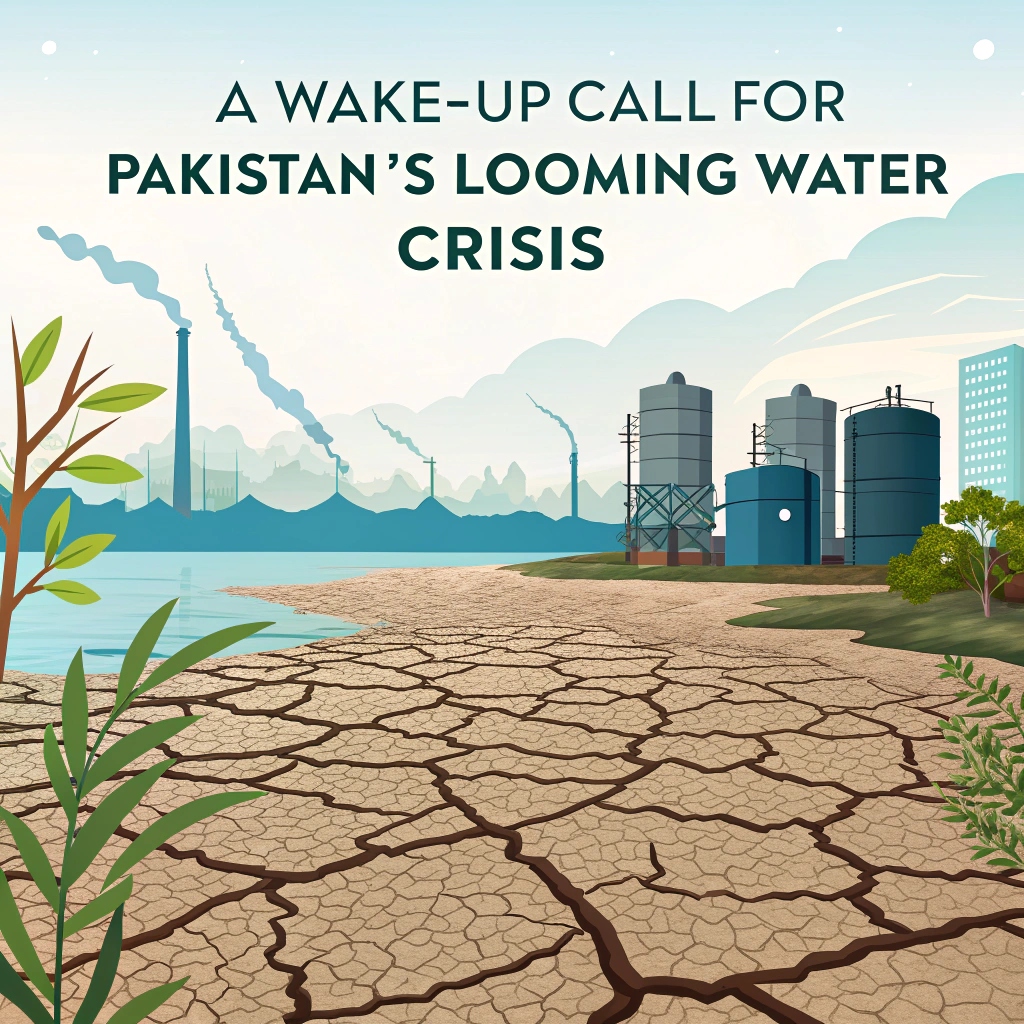World Water Day: A Wake-Up Call for Pakistan’s Looming Water Crisis
Pakistan faces an escalating water crisis. On World Water Day, learn about the challenges, causes, and urgent solutions for a water-secure future.
-
World Water Day: A Wake-Up Call for Pakistan’s Looming Water Crisis
-
Pakistan faces an escalating water crisis. On World Water Day, learn about the challenges, causes, and urgent solutions for a water-secure future.
-
Water Crisis is a sign of Climate Change Impact
World Water Day, observed annually on March 22, serves as a stark reminder of the urgent water-related challenges humanity faces. Pakistan, one of the 23 most water-insecure countries according to the UN Global Water Security Assessment 2023, is on the brink of an unprecedented water crisis. Rapid population growth, climate change, and mismanagement are pushing the nation toward absolute water scarcity. Without immediate intervention, Pakistan’s future development, public health, and stability are at serious risk.
The Alarming Water Crisis in Pakistan
In 1951, Pakistan had a per capita water availability of 5,000 cubic meters. Today, it has declined to just 720 cubic meters, dangerously close to the absolute scarcity threshold of 500 cubic meters. By 2050, with a projected population of 380 million, Pakistan could face a complete water collapse if corrective measures are not taken.
This crisis is exacerbated by erratic rainfall, devastating floods, and prolonged droughts, all intensified by climate change. Despite these glaring threats, water conservation efforts remain insufficient.

Causes of Water Scarcity
Climate Change Impact
- Rising temperatures are accelerating glacier melting, reducing the Indus River’s long-term water flow.
- Unpredictable monsoon patterns cause both devastating floods and prolonged droughts.
- Increased evaporation rates due to extreme heat further reduce surface water availability.
Population Growth and Urbanization
- Pakistan’s population has grown by 65% since 2000, increasing demand for fresh water.
- Urban centers experience excessive water wastage, while rural areas suffer severe shortages.
- Unchecked industrial expansion leads to groundwater depletion and contamination.
Poor Water Management
- Outdated irrigation techniques lead to 60% water wastage in agriculture.
- Lack of proper water storage infrastructure results in inefficient resource utilization.
- Contaminated drinking water affects millions, causing widespread health crises.
Consequences of Water Shortage
Health Impacts
- 80% of diseases in Pakistan are linked to unsafe water and poor sanitation.
- Waterborne diseases such as cholera, dysentery, and hepatitis affect millions annually.
- Malnutrition increases due to water shortages affecting food production.
Agricultural and Economic Consequences
- Agriculture, which employs 38% of Pakistan’s workforce, is heavily reliant on water.
- Water scarcity threatens crop production, leading to food insecurity and price hikes.
- The textile industry, dependent on cotton farming, faces severe disruptions.

Social Inequality and Conflict
- Rural communities, particularly women, bear the burden of water collection from distant sources.
- Poor sanitation and lack of clean water widen the urban-rural disparity.
- Potential regional conflicts may arise over shared water resources.
Solutions and Recommendations
Sustainable Water Management Policies
- Strengthen governance to ensure efficient water allocation and minimize wastage.
- Enforce stricter regulations on industrial and agricultural water usage.
- Introduce incentives for water conservation in households and businesses.
Investment in Water Infrastructure
- Construct new reservoirs and rehabilitate existing dams.
- Improve irrigation systems to reduce water losses in agriculture.
- Expand wastewater treatment plants to ensure water reuse.
Public Awareness and Conservation
- Launch nationwide campaigns to promote responsible water consumption.
- Implement school programs educating children on water conservation.
- Encourage community-driven initiatives for sustainable water use.
Conclusion: The Path Forward
World Water Day serves as a crucial reminder that Pakistan must act now to prevent an impending catastrophe. The Quran describes water as a divine blessing, urging humanity to use it wisely. Aligning policies with Sustainable Development Goal 6—ensuring clean water and sanitation for all—must be a national priority.
Internal efforts must be complemented with global cooperation, efficient governance, and public participation. Without immediate intervention, Pakistan’s water crisis could escalate into an existential disaster. The time to act is now.
Additional Resources
- UN Global Water Security Assessment 2023
- Pakistan’s Ministry of Climate Change
- World Water Day Official Website
Internal Links
- Read our article on Climate Change in Pakistan
- Learn about Sustainable Development Goals and Pakistan
- Discover Water Conservation Tips for Households







